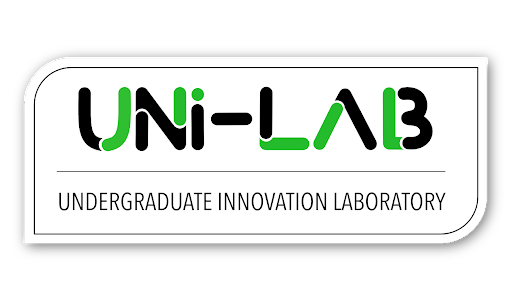Following the award of a Teaching Development Fund (TDF) grant the LITEbox team, in collaboration with the Public Engagement Unit (PEU) and e-Learning team, will be creating new opportunities for staff to explore the benefits of using technology to facilitate engagement with external publics to enrich their teaching.
The aim of the project is to explore and disseminate innovative engagement with new and existing technologies across the University that create opportunities for students and external publics (e.g. national/international scholars, third sector organisations, businesses, local and national government, peers) to engage with one another in diverse ways that enhance the learning experience. The TDF funding will be used to create a community of practice which shares and disseminates ideas to innovate this aspect of research-enriched teaching. To achieve this aim, there will be three phases during which the LITEbox team and student officers will:
Phase 1: map current use of technology to connect students with external publics.
Phase 2: identify examples of good practice across the institution and talk to staff about their experiences. A series of ‘engaged’ workshops will be co-convened to share experiences of staff, students and external publics, drawing on experiences across the Faculties/School (x 4) as well as an example from another university (x 1 webinar).
Phase 3: work in collaboration with the e-Learning Team, AV, the Public Engagement Unit and a student focus group, to evaluate and review these practices and develop a series of easily accessible online resources. This will include an online ‘hub’ of data e.g. blog posts, podcasts, case studies and online videos.
Arising from these phases will be a series of dissemination activities that will include:
- Pre- and post-LITEbox event videos to increase the accessibility and visibility of events and to support the engagement of academic and Professional Services staff in using technology.
- Production of a data suite of examples of innovation/good practice on the LITEbox blog. This will include case studies, blog entries, podcasts and other material made accessible to staff across the University. These resources will also be hosted on relevant sections of the PEU’s website to enhance visibility.
- In conjunction with the PEU, LITEbox will hold a ‘Public Engagement Conversation’ to report back project findings.
- As the Innovation Lab develops, LITEbox will work with the AV team and e-Learning to signpost the provision of a safe, supported environment for all staff to ‘experiment and explore’ new technologies. LITEbox controls an open booking system for this space, making it available for the academic community to trial innovative teaching activities such as video-conferencing and using interactive screens.
- A short report identifying the barriers, concerns and needs of staff through the workshop evaluations and share findings with relevant Professional Services.
- Workshop/conference paper at Exchange 2016 and any other relevant internal events.
- Active promotion of all LITEbox events/activities through existing University channels.
- LITEbox presentations will also be given to relevant University fora such as Director of Studies’ Forum, Senior Tutors Forum and Faculty/School Learning, Teaching & Quality Committees.
- Promotion of the resources/outputs through the Bath Course and Bath Scheme.
For those of you who would like a bit more detail please read on below . . .
For the others, if you would like to be involved or have any questions please do not hesitate to contact Dr Jessica Francombe-Webb, j.m.francombe-webb@bath.ac.uk and Samantha Wratten s.k.wratten@bath.ac.uk
Background & rationale
The rationale for identifying, showcasing and enhancing innovative use of new and existing technologies in general is underpinned by the findings of the 2014 UCISA survey of technology enhanced learning for higher education in the UK (Walker et al., 2014) which found that key drivers for considering the development of technology enabled learning were:
- enhancement of teaching and learning quality;
- meeting student expectations;
- improving access to learning for students away from campuses;
- improving administrative processes.
Moreover, this project is underscored by research that demonstrates how technological innovation has had positive implications for areas “such as student access, equity, and transition . . . social and professional interactions” (Kennedy et al., 2008, p. 109).
In line with this research, it is proposed that increasing students’ professional interactions and encouraging students to communicate their own research and inquiry-based activities are just two ways that the University can support student learning and enhance student experiences. The University of Brighton’s Community University Partnership Programme (CUPP) highlights the benefits of supporting students in community engagement activities. This all points towards the need to find ways for students to be actively reaching out beyond the classroom and engaging with relevant publics in safe, comfortable and creative learning environments. What is missing from initiatives such as that at the University of Brighton, and arguably what is unique about this project, is the role of technologies in facilitating community engagement. This is an under-developed area and one that this project seeks to improve. The Public Engagement Unit (PEU) at the University has identified that technology can enhance students’ engagement with external publics and communities in three ways: (1) enhancing reflexivity during moments of ‘connection’ and collaboration (2) supporting the process of engagement either through the production of engagement activities or the capturing of the engagement process (3) acting as a form of assessment. In these ways, technology can support and enhance holistic experiential learning processes, with students undertaking active learning experiences that prepare them for their future careers.
Facilitating students’ interactions with groups external to the University fosters the type of educational excellence outlined in The University Strategy 2013-16, particularly in relation to ‘offering a research-enriched, practice-informed academic portfolio which is intellectually challenging and internationally relevant’. To achieve this type of excellence that is both guided by practice and international in scope invariably requires ‘the adoption of innovative digital technologies.’
The University of Bath is well placed to do this; a previous TDF project – Public engagement with research projects in the undergraduate curriculum – has utilised technologies such as e-portfolios and mixed-media digital portfolios that capture, creatively, students’ learning journeys as they produce and deliver public engagement activities. However, this project focused solely on the curriculum development within the Faculty of Science. As a result there remains a need to reflect on these experiences as well as better understand the opportunities and challenges presented by the deployment of new and existing technologies to engage with external publics across faculties and the School of Management. Furthermore, there is a need to capture the variety of differing relationships that technology facilitates with external publics – e.g. are publics involved merely as case studies in teaching, or as expert guest speakers, or as collaborative partners in engaged research projects? And are there differing technologies and means of engagement that suit differing publics – e.g. engaging with industry versus engaging with local community organisations?
As per the University Strategy, technology has a role to play in innovating current practice especially as it allows students to connect and interact with publics beyond their classroom. Additionally, there are a number of notable barriers to the development of technology-enabled learning in the form of time, money, lack of knowledge, institutional culture and department/school culture (UCISA, 2014). It is, therefore, important that this project does not have any ‘taken-for-granted’ assumptions about the role of technology in staff and students’ personal and professional lives. There is also a need to overcome one of the key challenges when encouraging staff to use learning technologies and that is to attract and engage people beyond those already, often self-identifying, technology enthusiasts. To address this, the aim of this project is to develop a community of practice enabling dissemination and reflection by lecturers, publics and students for lecturers, publics and students, supported and enabled by a range of Professional Services and the Students’ Union. Through a series of five University-wide workshops, this project will provide opportunities for lecturers to share their experiences of integrating learning technologies in their teaching and reflect on the pedagogical benefits, specifically around how technology can aid in creating opportunities for students to engage with external publics.
If you would like to be involved or have any questions please do not hesitate to contact Dr Jessica Francombe-Webb, j.m.francombe-webb@bath.ac.uk and Samantha Wratten s.k.wratten@bath.ac.uk
Respond



